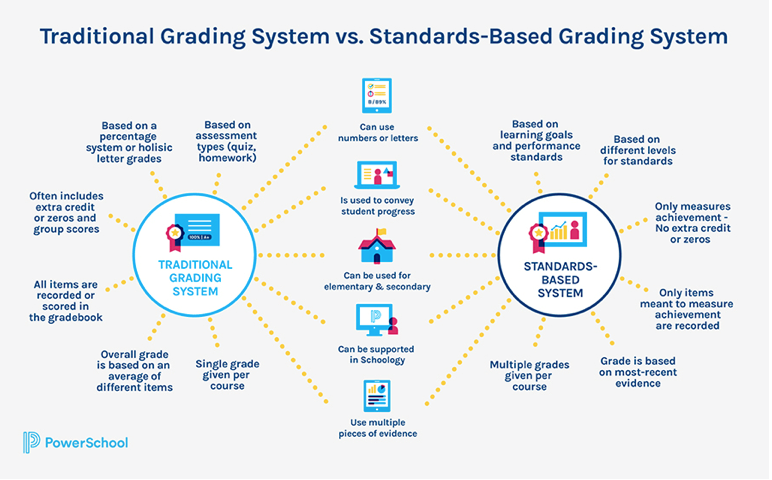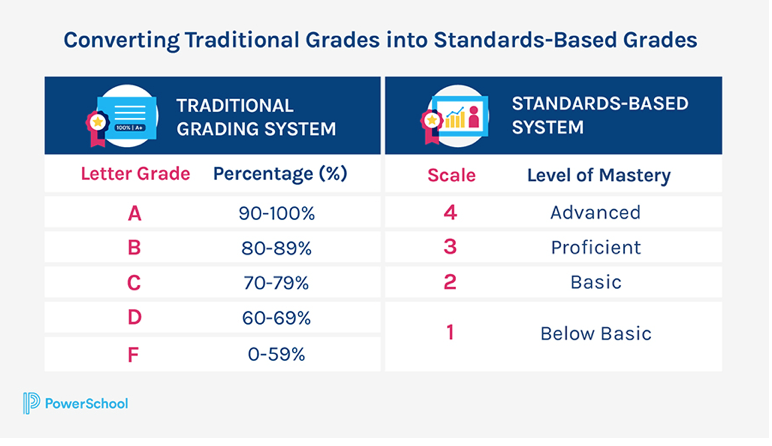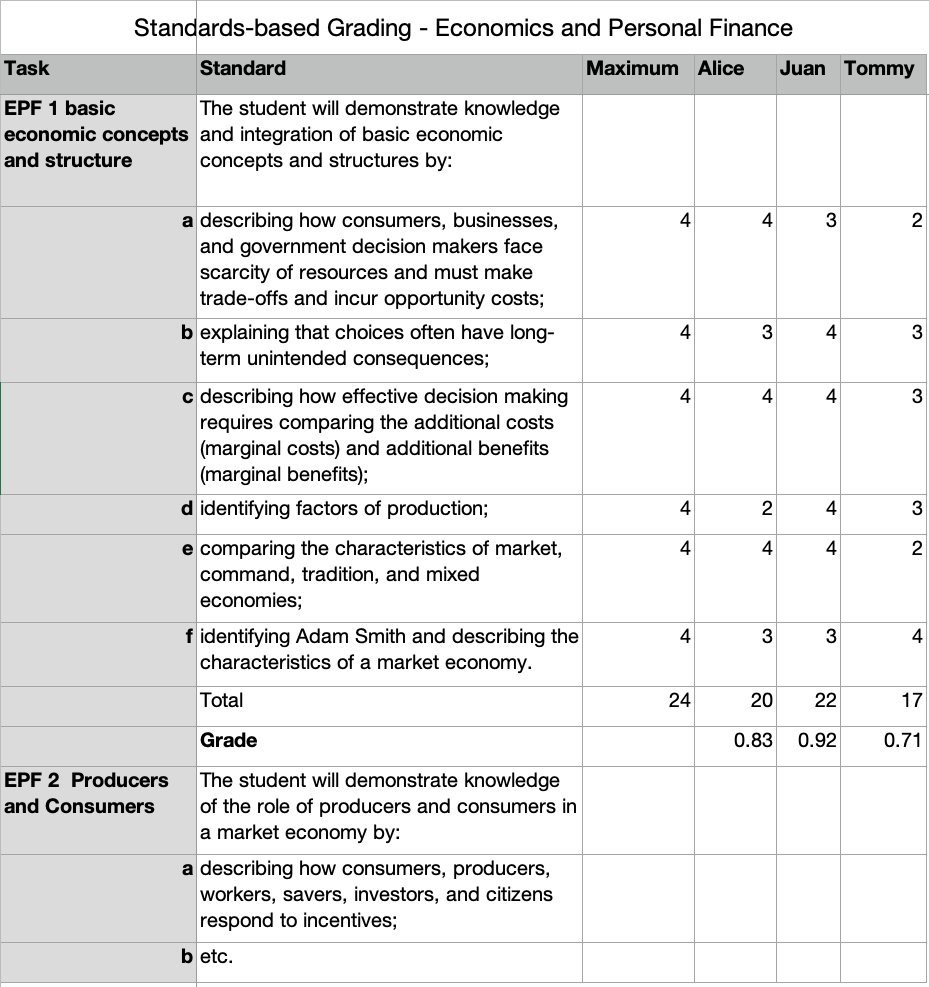 by James C. Sherlock
by James C. Sherlock
Standards-based grading (SBG) is a way to view student progress based on proficiency levels for multiple standards within a specific grade level course of instruction.
It contrasts with the traditional method of relying on a single grade representation as the sole measure of achievement for a grading period in a specific class.
It is not difficult to find favorable assessments of standards-based grading. It, like every other grading system, has advantages and disadvantages.
But now SBG is being been sold — and bought — with an “equity” tag.
If you don’t use it, your school system is being told it is presumptively racist. Teachers stand accused in the dock. Parents and children are positioned as helpless victims of the grading system without agency in outcomes. In certain zip codes, that predictably has induced panic buying.
The backlash is fierce. See Standards-Based Grading Will Ruin Education. The author, a teacher, is thoroughly negative about the new system.
This will be a two part story. Here I will describe standards-based grading in the eyes of proponents and opponents. In part 2, I will describe its transition from an alternative way to grade to a lodestone of progressive education.
The two grading systems

Standards-based grading in Virginia is based on Virginia’s Standards of Learning (SOLs). Virginia initiated SOLs in 1995 instead of Common Core.

As example of SBG, if you are a teacher of Economics and Personal Finance, you can download the SOL documentation for your course and create a spreadsheet that displays each standard and each competency for each standard.
Below is a sample spreadsheet for the Virginia Economics and Personal Finance SOL grade “book.”

That requires the creation of another system for reflecting attendance, personal comportment in school/class, effort, homework completion, etc.
Even its proponents admit that the process of standards-based grading combined with the recommended process of individual student re-teaching, re-testing and reassessment (grade update) based on recognition of sub-par competencies takes a lot of time.
Then the grades need to be weighted over the duration of the course to ensure that the overall course grade reflects the knowledge of the material at the end of the course. Like the “grade book” computations, the weighting can be done with formulas in a spreadsheet. Some students like the weighted averaging, some don’t. Homework, quizzes and class participation, considered learning experiences, don’t count towards the grade, only tests.
Proponents contend that subject matter mastery at the end of the course is the main goal, so the standards-based grading system is designed to reflect that.
Opponents say it is a massive waste of time. They contend that everyone, teachers and students alike, game the system to lesser or greater degree and it is not worth the major consumption of time it takes to attempt to do it right.
The time consumed in standards-based grading may be the most compelling reason to stay with traditional grading. Our teachers famously don’t have a lot of spare time.
In the right teacher hands it can work, but so can/has the older system.
But standards-based grading is now tied by some enthusiasts to equity. Opponents say that now that a racial justice link has been made, progressive educators will declare it successful no matter what.

Leave a Reply
You must be logged in to post a comment.